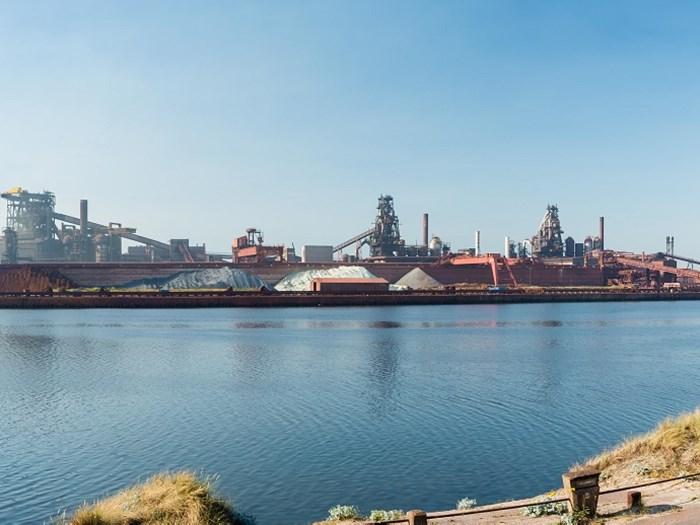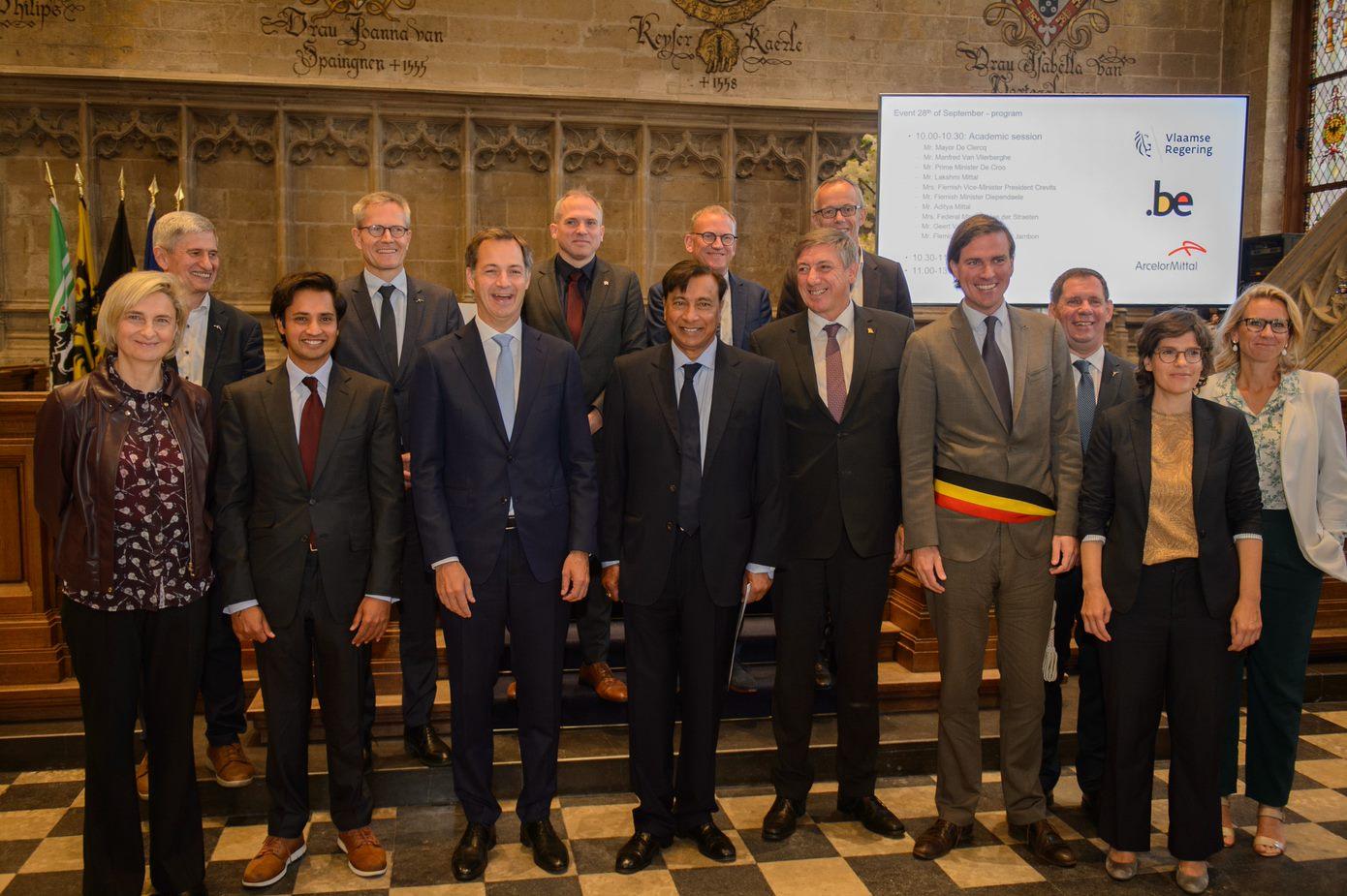Products
Product pages available in
EN - DE - FR - ES
Sustainability
News, events and stories
ArcelorMittal’s investments in decarbonisation technologies and the world’s first full-scale zero carbon-emissions steel plant
04/03/2022 - ArcelorMittal has announced major investments in decarbonisation technologies in Belgium, France, Spain and Canada. Combined investment for the four projects totals US$5.6 billion, with anticipated carbon emissions reduction totaling 19.5 million tonnes, which is the equivalent of greenhouse gas emissions from 4,240,858 cars being driven for a year. These projects sit at the heart of ArcelorMittal’s ambitious targets in the fight against climate change: a 35% reduction in CO2 emissions in Europe, a 25% reduction globally by 2030 and carbon neutrality by 2050.
To achieve these ambitious CO2 reduction goals, ArcelorMittal focuses on a myriad of ways to achieve carbon neutrality:
- Further improvement of material and energy efficiency as well as increased scrap usage
- The development and implementation of innovative decarbonisation technologies, like Electric Arc Furnaces (EAFs) or Smart Carbon technologies
- Replacing carbon as a reductant with green hydrogen
Spain: decarbonisation of our Spanish operations and the world’s first full-scale zero carbon-emissions steel plant
ArcelorMittal has signed a memorandum of understanding (MoU) with the Spanish Government that will see a €1 billion investment in decarbonisation technologies at ArcelorMittal Asturias’ plant in Gijón. The investments will reduce CO2 emissions at ArcelorMittal’s Spanish operations by up to 4.8 million tonnes, which represents approximately 50% of emissions, within the next five years.
ArcelorMittal has also announced that its Sestao plant in Spain will become the world’s first full-scale zero carbon-emissions steel plant. The development is the result of an memorandum of understanding signed today with the Government of Spain that will see an investment of €1 billion in the construction of a green hydrogen direct reduced iron (DRI) plant at its plant in Gijón, as well as a new hybrid electric arc furnace (EAF).
“It is widely understood that for the world to achieve net-zero by 2050, faster progress over the next decade is essential. The MoU we have signed today will play an important role in doing exactly that. The construction of the new green hydrogen DRI plant in Gijón will not only enable us to reduce emissions at our Spanish operations by half, but will also result in the world’s first scope one and two net zero steel plan in Sestao.
Clearly, this is a project that will require the support of many different partners to succeed; our plan hinges on the supply of affordable, mass-scale hydrogen, access to sustainable finance and a supportive legal framework that allows us to be competitive globally. The Spanish government has clearly defined plans to transition the country to a decarbonised economy and I have been impressed by the progress made in creating the energy infrastructure that this green economy will require.
As a large emitter, the steel industry can make a vital contribution to achieving net zero. This project demonstrates what is achievable and we hope it galvanizes engagement to accelerate progress over the next decade and beyond.”
Aditya Mittal, CEO ArcelorMittal
By 2025, the Sestao plant – which manufactures a range of flat steel products for the automotive and construction sectors, and general industry – will produce 1.6 million tonnes of zero carbon-emissions steel by:
- Changing the metallic input by increasing the proportion of circular, recycled scrap, and using green hydrogen-produced DRI from Gijón in its two existing EAFs.
- Powering all steelmaking assets (EAFs, rolling mill, finishing lines) with renewable electricity.
- Introducing several key emerging technologies that will replace the small, remaining use of fossil in the steelmaking process with carbon neutral energy inputs, such as sustainable biomass or green hydrogen.
Canada: partnering with the Canadian government towards a common decarbonisation agenda
ArcelorMittal has confirmed with the Government of Ontario its plan for a c. CAD$1.8 billion investment in decarbonisation technologies at ArcelorMittal Dofasco’s plant in Hamilton. As announced in July, 2021, the investment will reduce annual CO2 emissions at ArcelorMittal’s Hamilton, Ontario operations by approximately 3 million tonnes, which represents approximately 60% of emissions. This means the Hamilton plant will transition away from the blast furnace-basic oxygen furnace steelmaking production route to the Direct Reduced Iron (DRI) – Electric Arc Furnace (EAF) production route, which carries a significantly lower carbon footprint.
The project is scheduled to be complete by 2028, although ArcelorMittal is looking for opportunities to accelerate the project timelines.
“Reducing our CO2 emissions intensity worldwide by 25% by 2030 is an ambitious target for a steel and mining company; but we believe it is achievable and that it is our responsibility to invent or innovate the processes and technologies that will enable us to reach that goal. As part of that, we understand that in the coming years, the assets used to make steel will undergo a transformation on a scale not seen for many decades.”
John Brett, CEO of ArcelorMittal North America
The investment was contingent on support from the governments of Canada and Ontario. In July 2021 the Government of Canada announced it will invest CAD$400 million in the project and in February 2022, the Government of Ontario announced it will invest CAD$500 million in the project. This secures project funding and firms up the investment.
At the heart of the plan is a 2.5 million tonne capacity DRI facility and an EAF facility capable of producing 2.4 million tonnes of high-quality steel through its existing secondary metallurgy and secondary casting facilities. Modification of the existing EAF facility and continuous casters will also be undertaken to align productivity, quality and energy capabilities between all assets in the new footprint. The project is expected to support as many as 2,500 jobs during the engineering and construction phases.
France: ArcelorMittal accelerates its decarbonisation with a €1.7 billion investment programme, supported by the French Government
The French Prime Minister, Jean Castex, has announced support from the French Government for ArcelorMittal’s decarbonisation programme in France, which involves a €1.7 billion investment in its Fos-sur-Mer and Dunkirk sites. This investment will enable a total reduction of close to 40% or 7.8 million tonnes per year in ArcelorMittal’s CO2 emissions in France by 2030. This transformation will represent a 10% reduction in greenhouse gas emissions from the manufacturing industry in France and put France’s steelmaking industry on the path of the Paris Agreement.
- In Fos-sur-Mer, ArcelorMittal will build an Electric Arc Furnace (EAF). This new unit will complement the ladle furnace announced last March and supported by France’s recovery plan, ‘France Relance’. Together these investments will turn Fos-sur-Mer into a reference site for the production of low carbon, circular steel, made from recycled steel
- In Dunkirk, ArcelorMittal will build a 2.5 million tonne Direct Reduction of Iron (DRI) unit to transform iron ore using hydrogen instead of coal. This DRI will be coupled with an innovative technology electric furnace and completed by an additional Electric Arc Furnace (EAF). Other investments are already under way to continue to increase the proportion of scrap steel used.

ArcelorMittal accelerates its decarbonisation with a €1.7 billion investment programme in France
The new industrial facilities will be operational starting in 2027 and will gradually replace 3 out of 5 of ArcelorMittal’s blast furnaces in France by 2030 (2 out of 3 in Dunkirk, 1 out of 2 in Fos).
ArcelorMittal’s French operations have already started working on a second step in their decarbonisation programme, which will use the technologies implemented during the first step, along with carbon capture and storage or utilisation (CCU/S) technologies, assuming the technology sufficiently matures and regulation ensures it economic viability. This second step will enable ArcelorMittal’s French operations to reach carbon neutrality by 2050.
Belgium: ArcelorMittal signs letter of intent with the governments of Belgium and Flanders
ArcelorMittal announces that it has signed a letter of intent with the Governments of Belgium and Flanders, supporting a €1.1 billion project to build a 2.5 million-tonne direct reduced iron (DRI) plant at its flagship Gent plant as well as two new electric furnaces, to operate alongside its state-of-the-art blast furnace that is ready to take waste wood and plastics as a substitute for fossil carbon. By doing this, ArcelorMittal Belgium will reduce CO2 emissions by 3.9 million tonnes per year by 2030.
The support of both the national and the Flanders governments in this project is crucial given the significant cost associated with the transition to carbon-neutral steelmaking. Approval from the European Commission for the funding support will also be required.
“To tackle the climate crisis, we need ambitious action. European countries are leading the way, with clear targets to reduce greenhouse gas emissions by 55% by 2030 and climate neutrality by 2050. It is good to see that sectors with a large footprint are also joining the race by investing in innovation that reduces emissions and, in the long term, achieves carbon neutrality. This major investment in new technology by ArcelorMittal is important for the wider Ghent region, for reducing our country’s footprint, and shows that decarbonising our economy is a joint effort.”
Alexander De Croo, Prime Minister of Belgium
The DRI plant will operate alongside Gent’s blast furnace B, which restarted production in March 2021 following a significant investment of €195 million.
Once the DRI and electric furnaces are built, there will be a transition period during which production will move gradually from blast furnace A, to the DRI and electric furnaces, after which blast furnace A will be closed as it reaches the end of its life. By 2030, this will result in a reduction of around three million tonnes of CO2 emissions each year.

ArcelorMittal signed a letter of intent with the governments from Belgium and Flanders
Videos on ArcelorMittal's decarbonisation projects






